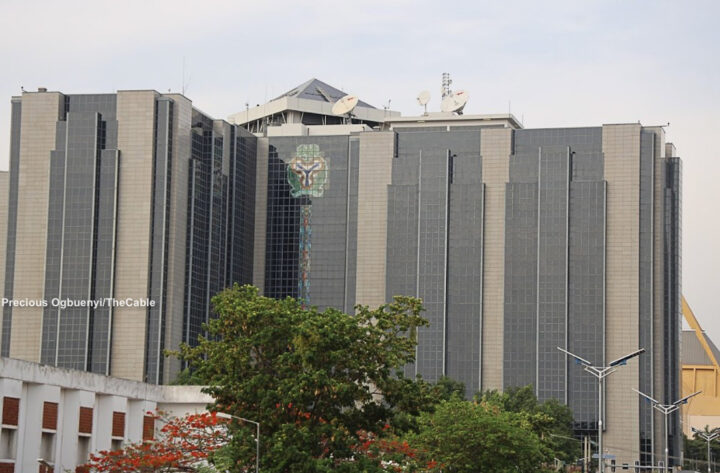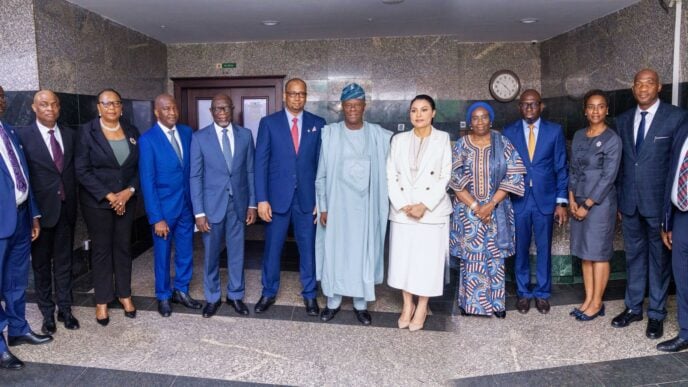The Lagos Chamber of Commerce and Industry (LCCI) has asked the Central Bank of Nigeria (CBN) to provide a roadmap for the future easing of interest rate.
On Tuesday, the monetary policy committee (MPC) of the CBN retained the monetary policy rate (MPR), which benchmarks interest rates in the country, at 27.50 percent.
The MPC also retained the cash reserve ratio (CRR) at 50 percent, and the liquidity ratio at 30 percent.
In a statement on Tuesday, Chinyere Almona, LCCI’s director-general (DG), said the chamber believes retaining the interest rates will help stabilise the economy and control inflationary pressures.
Advertisement
However, it urged the CBN to complement the rate hold with a forward-guided, data-driven roadmap for future easing, to help businesses with medium and long-term plans.
“While the recent marginal decline in headline inflation offers some relief, we recommend that the Central Bank of Nigeria (CBN) adopt a cautious stance while also providing a clear signal of possible future easing, subject to sustained economic improvements,” Almona said.
“Despite the drop in inflation to 23.71%, Nigeria’s macroeconomic conditions remain harsh due to the persistent inflationary pressures, fuelled by exchange rate volatility, rising fuel and logistics costs, and deep-rooted structural challenges, including insecurity and disruptions in food production.
Advertisement
“A premature reduction in interest rates under such conditions could undermine investor confidence and raise doubts about the CBN’s commitment to price stability. Maintaining the current rate reflects a balanced approach: one that avoids inflationary risks while allowing time for consistent macroeconomic trends to emerge.
“The LCCI urges the MPC to complement this rate hold with a forward-guided, data-driven roadmap for future easing. Such a strategy would provide the business community with the clarity needed for medium- and long-term planning.”
‘RATE CUTS SHOULD BE BASED ON DISINFLATION TREND, FX STABILITY’
Almona said key indicators for future rate reductions should include a trend of disinflation over at least two to three months, improved foreign exchange (FX) liquidity and stability, and concrete signs of recovery in the real sector—particularly with respect to credit accessibility to micro, small, and medium-sized enterprises (MSMEs).
“The current MPR level remains prohibitively high for private sector development; MSMEs, the engine of job creation and productivity in Nigeria, are being squeezed by the high cost of credit,” she explained.
Advertisement
“Without affordable financing, their capacity to grow, compete, and contribute to economic development is severely limited. Moreover, it is increasingly clear that monetary policy alone cannot curb inflation that stems from structural and supply-side inefficiencies.
“Coordinated action with fiscal authorities is essential to address the root causes of inflation, such as insecurity, infrastructure deficits, and food supply disruptions.
“To cushion the real sector while maintaining price discipline, the LCCI offers the following strategic, market-friendly proposals: Remain consistent with the reforms that support price stability through increased production in the real economy.
“Reinforce development finance initiatives by offering concessional rates to high-impact sectors such as manufacturing, agriculture, renewable energy, and power supply. Development finance institutions like the Development Bank of Nigeria, Bank of Agriculture, NEXIM Bank, and the Bank of Industry need better funding and directions towards supporting the productive and industrial sectors of the economy.
Advertisement
“Promote transparency in bank lending rates to ensure borrowers are not unfairly burdened by excessive spreads above the MPR. Implement measures to stabilise the FX market, reduce arbitrage opportunities, and rebuild investor confidence, critical steps for reducing imported inflation.”
Almona said she advocates for a balanced approach that contains inflation while revitalising Nigeria’s productive economy, as now is the time for careful, data-informed monetary signalling coupled with strategic support for the real sector.
Advertisement
The DG added that the LCCI asks the CBN and federal government to incorporate the perspectives into their policy decisions to foster sustainable growth and economic resilience.
Advertisement










